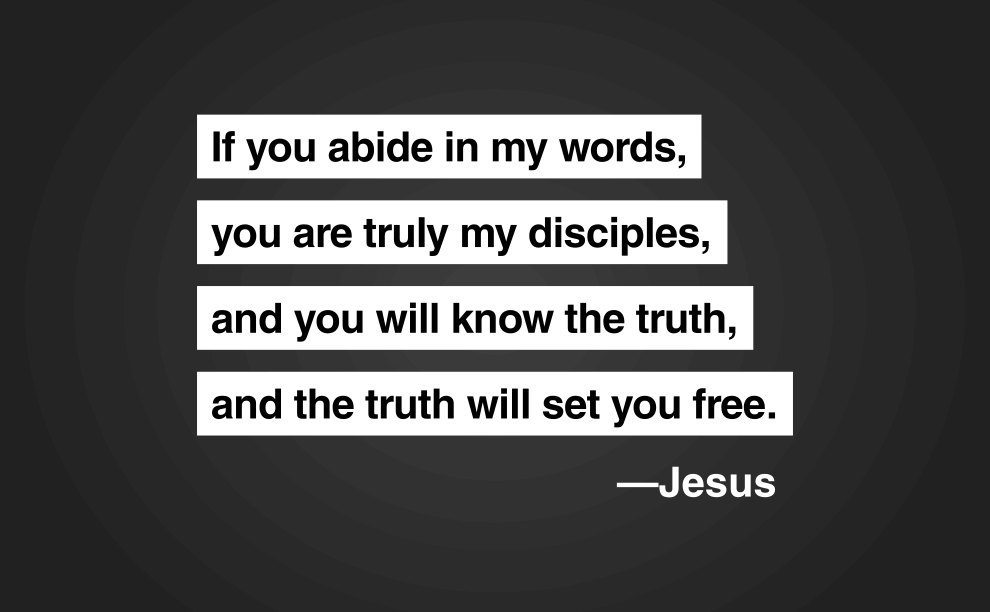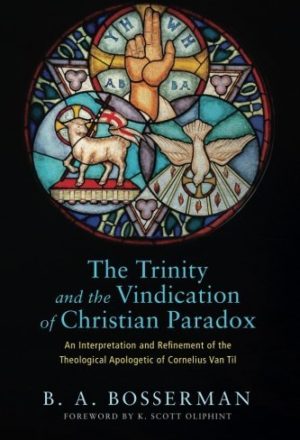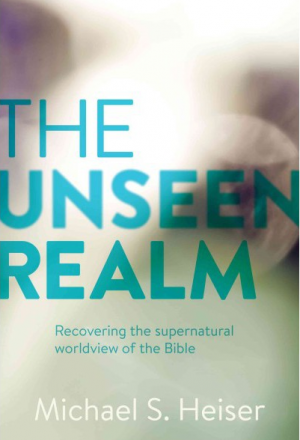Imagine standing on a mountain and hearing God’s voice boom from heaven. I’m not talking about thunder that you relate to God (which is appropriate), but audible and clear words coming out of the heavens saying “this is my beloved Son, listen to him!” What impact would that have on your life? Or what if the angel of Yahweh spoke to you out of a bush that was on fire but wasn’t being consumed? What if he told you to go stand down a whole country of people? What if God gave you a dream that had a different quality than other dreams, one that begged for interpretation, and then God sent you someone to interpret it for you? Or what if an angel came to you in the form of a person seeking hospitality and brought you a message from God? What if a person came up to you and disclosed the secrets of your heart that she could not have known and brought with it a message of comfort and assurance that God sees your deepest struggles and is addressing them in grace? Would you test the spirits and hold fast to what is good and rejoice, or would you give way to doubt? Would you explain it away with natural explanations? Would you conclude it was a hallucination from being dehydrated, or would you use discernment and be careful not to despise prophesy?
Reformed concerns
Christians who delight in the Reformed heritage often struggle with the above questions and many ultimately come to dismiss the kinds of revelations related above in light of the more sure revelation in the prophetic, scriptural word. But when we do so, do we honor that scriptural word?
Sinclair Ferguson in his helpful book The Holy Spirit addresses prophesy in the church today and claims that if it were still functional it would undermine the doctrines of the sufficiency of Scripture and Sola Scriptura. He writes,
While the New Testament was being written, the guiding principle, or canon, of the early church was multiplex: the Old Testament, the apostolic directives, prophesies, and those parts of the New Testament already written. Now this multiplex canon, or rule of faith and life, gives way to a single canon: the Scriptures of the Old and New Testaments. They now contain ‘everything we need God to tell us for salvation, for trusting him perfectly, and for obeying him perfectly.’ The logical implication of the sufficiency of Scripture is that no additional revelation is needed by the church or the individual. What is needed is illumination. Hence, the Reformation doctrine of sola scriptura over against the Roman Catholic Church’s doctrine that both Scripture and tradition constitute divine revelation. (Ferguson, 231)1
These criticisms, if true, would be devastating to the godliness of modern day prophesy. But I want to make the case that not only does modern day prophesy not overturn these important and beautiful doctrines of Scripture, it actually stands in glorious concert with them. Prophesy is not part of the canon of Scripture, which is a confusion of categories, but should be considered alongside general revelation as a way God continues to speak to his people today. Let me address each of Ferguson’s points of concern one at a time with the goal of opening us up to listen when God speaks to men outside of Scripture.
Sufficiency of Scripture and Prophesy
The sufficiency of Scripture is an important and glorious doctrine taught in the Bible itself. Paul tells Timothy that the Scriptures are profitable that the man of God may be competent, equipped for every good work (2 Timothy 3:16-17). The Bible is able to equip a person for every good work. That means he doesn’t need anything else. What a glorious and encouraging truth in a world that insists that we need the world’s wisdom, whether that is the teaching of current popular psychology for counseling or the latest scientific discovery to set the Bible straight.
But the fact that we don’t need anything else does not mean that we can’t use anything else, or that nothing else is helpful. While I strongly reject the claim that I have to study Freudian psychology to counsel saints through their sin, I also don’t claim that I have nothing to learn from psychology. God speaks constantly in the things that have been made, and we would be foolish to close our ears to that revelation or to people who devote their lives to study it. We have to listen to them discerningly, especially when they have fundamentally different starting points than we do, but a robust doctrine of general revelation would prohibit us from saying there is nothing for us to learn in the study of the world outside of Scripture. God is speaking there. The doctrine of sufficiency was never meant to convey that the Bible is our exclusive source of knowing. Just because something is sufficient does not mean it is all that we have.
A meme attributed to John Owen has been going around the internet lately propagating a similarly oversold version of sufficiency. It says something like “If private revelations agree with Scripture, they are unnecessary and if they disagree they are false.” My immediate thought is that the category of the writings of Owen (a hero of mine) would fit nicely into that statement. “If Owen’s writings agree with Scripture, they are unnecessary and if they disagree they are false.” True enough, but while we don’t absolutely have to have Owen’s writings, why wouldn’t we want to have them? His writings on the scriptural teaching about sin and temptation (among others) are an incredible gift to the church. Just because the Scriptures are sufficient, doesn’t mean that they are all we have, or that we cannot be helped by anything else. I would go a step further and say that since Scripture itself commands us not to despise prophesy but to earnestly desire it, then it follows that the sufficient Scripture equips us in part by pointing us to prophesy. Therefore, the despising or refusing to earnestly desire prophesy would go against the clear teaching of the sufficient scriptures. What if we used the doctrine of the sufficiency of Scripture to ignore commands of Scripture? Would that honor God or the doctrine?
Trending
Sola Scriptura and Prophesy
Ferguson also raises the concern that the embrace of prophesy undermines the doctrine of Sola Scriptura. The reasoning goes something like this:
1. Sola Scriptura means that Scripture alone is our final authority
2. Prophesy, understood as revelation from God, would of necessity bear the same authority as Scripture does
3. Thus, prophesy would undermine the doctrine of Sola Scriptura
It is important to note that the doctrine of Sola Scriptura does not mean that Scripture alone is our authority. This is clearly not true, as the Bible itself lays out other important authorities such as the government, church elders, husbands, or parents. The claim is that Scripture alone is our final authority. So you could have authoritative speech so long as its authority is subject to the authority of God as revealed to us in the Scripture. But the argument is that if God is truly speaking in prophesy, then that speech must be authoritative. It is hard to imagine how God would speak more authoritatively in Scripture and less so in prophesy. When God speaks, he does so with total authority.
This seems true, as we consider the authority of various kinds of God’s speech expressed in the Bible. Think first of God’s speech in general revelation, that is, his revealing of himself in the things he has made. First, is it speech? Psalm 19 describes it as the heavens declaring and proclaiming, the days and nights pouring out speech, and revealing knowledge. It says that their voice goes out to the ends of the earth, and their words to the end of the world. That seems pretty clear. Now, is that general revelation speech authoritative? Romans 1 suggests that it is, claiming that God’s wrath is revealed against all mankind because God clearly showed them the truth about himself in the things that have been made (general revelation), but they refused to honor him or give thanks, but rather suppressed that truth in unrighteousness. So the truth of who God is in general revelation comes with such authority that to reject it and to refuse to act on it results in judgment from God. God speaks in nature, and he speaks authoritatively. I trust this look at general revelation is not highly controversial, and establishes the case clearly on its own that God speaks authoritatively outside Scripture.
God also speaks subjectively, internally to our hearts in an authoritative way. He addresses this in Romans 2. Paul asks what God will do in judgment with those who have never heard the Scripture. His answer is that those who have not heard the law will not be judged by the law, but rather by their own consciences. God has written the law on the heart of every person in their conscience. God speaks so authoritatively there, that he uses it as the standard of judgment for those who haven’t heard his Scripture. This kind of internal testimony would fall under what John frame refers to as the existential perspective of revelation. I would place in this same category the internal testimony of the Spirit for believers (Romans 8:16), the anointing that teaches believers all things (1 John 2:20-21, 27), and prophesy (1 Corinthians 14:29-33). So if all of God’s speech is authoritative, and we want to affirm Sola Scriptura along with the Reformers, do we need to jettison prophesy as Ferguson suggests? If so, it seems we would also need to jettison general revelation in order to be consistent. Or do we need to jettison the doctrine of Sola Scriptura?
How do we make sense of all the data? God speaks authoritatively wherever he speaks, and he speaks outside the Bible, and we hold a doctrine that says that Scripture alone is our final authority. Is there any way forward without eliminating one of these beliefs? If only there was some model for us to conceive of authority that is ontologically equal but economically subordinate, then we could receive all of God’s revelation as authoritative wherever he speaks, and still see a kind of priority in the Scripture. (See sidebar for definitions of ontology and economy)
Towards A Resolution of the Concerns
As it turns out, at the very nature of all reality is the God who is triune. While each of the persons of the Trinity are fully God, equal in their being (and their authority), at the same time the Triune God exhibits economic roles of subordination. John Frame summarizes helpfully, “although the church has officially denied the ontological subordination of Arianism, it has affirmed economic subordination among the persons of the Trinity. That is, the persons of the Trinity voluntarily subordinate themselves to one another in the roles they perform in respect to creation” (Frame, 500).2
Since this Tri-unity expresses the very nature of God, we should not be surprised to see a similar pattern in the way he relates to the world. It does not necessarily follow that God’s trifold witness of himself in revelation would follow this pattern, but it certainly would be fitting if it did, and I want to make the case that looking at revelation through this lens helps us to make sense of the Biblical data.
We saw above that God speaks in various ways, testifying to himself by two or three witnesses, and that whenever God speaks, he speaks with authority. I want to suggest now that within those three channels of revelation, there is a kind of economic subordination of authority. If the normative revelation (Scripture) is analogous to the Father who plans and sends, the situational revelation (general revelation) is analogous to the Son who is incarnate in the world, and the existential revelation (prophesy, conscience) is analogous to the Spirit, who applies the realities to our inner beings, then we can see a kind of economic subordination in the revelation.3 In this analogy then, Scripture would bear a kind of uniquely authoritative role, such that we might say that it alone is our final authority. But in looking at it this way, we now have categories for fully authoritative words of God outside of Scripture, which still serve a submissive role to Scripture. I believe this is just what Scripture teaches about these things.
Paul seems to point at this when he tells prophets that they need to acknowledge that what he is writing is a command from the Lord. This seems like a clear example of subordinating the authority of the prophet to the authority of Scripture. If a prophet does not recognize it, he is not recognized (1 Corinthians 14:36-40). Peter seems to suggest the same thing when he points out that prophesy of Scripture is more fully confirmed, or more sure than even the audible voice of God descending from heaven. There is greater confirmation, greater surety in Scripture than in the most blatant and clear speech pouring forth from the heavens (2 Peter 1:16-21). John seems to have the same thing in mind when he urges believers not to believe every spirit, expressed in prophesy, but to test them by the clear doctrine revealed in Christ Jesus and handed down to us through the apostles (1 John 4:1-3). One final example from Paul includes his very clear and repeated exhortation to refuse to receive even an apostle or an angel who preaches a gospel contrary to the one that had been preached by the apostles (Galatians 1:6-9).
The outflow of all of this is that we maintain a high view of Scripture, embracing and delighting in the important doctrines of Sola Scriptura and the sufficiency of Scripture, while at the same time holding in high regard other ways that God speaks to his people. Viewed through this lens, our doctrine of Scripture remains high, and our doctrines of general revelation and prophesy are risen to the important place that Scripture puts them in. Reformed evangelicals have been strong on Scripture, but perhaps not strong enough on other ways Scripture tells us that God is speaking. It is my hope that this lens will help some to settle their fears about various ways that God speaks and give more attention to all that God says, and simultaneously lead others to a more careful subordination of revelations to the exalted standard of Scripture so that we may all rejoice and tremble at every way that God speaks to men.
References:
- Ferguson, Sinclair B. The Holy Spirit. IVP: Downers Grove, 1996.
- Frame, John. Systematic Theology: An Introduction to Christian Belief. P&R: Phillipsburg, 2013.
- The three categories of revelation I use here are from John Frame's theology of triperspectivalism, which can be found in many of his works. His thinking on this has shaped much of mine in this article, although I doubt he would agree with all of the applications I make of it. For an intro into his thinking on the topic see his book Theology in Three Dimensions.





















